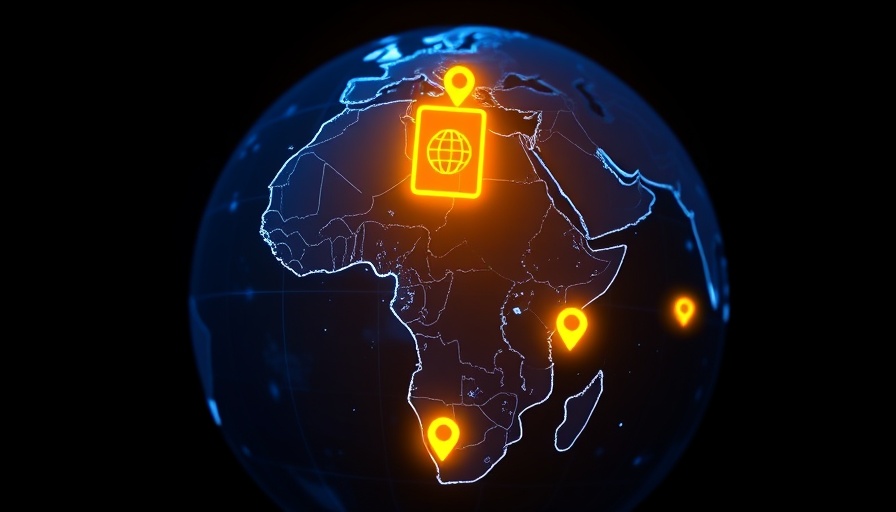
The Rise of Digital Nomadism: A New Era for Work
In the wake of the pandemic, the professional landscape has undergone a seismic shift towards remote work. The concept of the digital nomad—a traveler who works remotely—has gained significant traction globally. From approximately 4.8 million in 2018 to over 10.9 million by mid-2020, this burgeoning community has redefined the traditional office setup. It's not just about working with a laptop; it’s a lifestyle change that the world has embraced.
African Nations Join the Digital Nomad Movement
In response to this trend, Africa has emerged as a viable destination for digital nomads. More than ever, governments are keen to attract this new wave of remote workers. With their increasing disposable income and penchant for local spending, digital nomads significantly contribute to economic stability. Reports suggest that South African digital nomads contribute about $2,700 monthly to the local economy, emphasizing the financial benefits for countries that welcome them.
Digital Nomad Visas: How Africa is Embracing Change
Africa has recognized the importance of catering to digital nomads through specially designed visas. Countries like Mauritius, Cape Verde, Seychelles, Namibia, and South Africa have introduced various forms of digital nomad visas since 2020, offering extended stays and benefits that facilitate a smooth transition for remote workers. This strategic move not only enhances the region's appeal but fosters international relationships, encouraging cultural exchange and innovation.
Economic Impact: A Future-Focused Opportunity
The appeal of African nations lies in their diverse landscapes, vibrant cultures, and a growing startup ecosystem. Fintech, AI, and blockchain innovations are reshaping industries on the continent, positioning countries as not just tourist destinations but vital hubs for technological growth. This convergence of digital nomadism and technological advancement is shaping the future of work in Africa.
Conclusion: Embracing the Future of Work
As more countries in Africa tap into the opportunities presented by digital nomad visas, the future looks promising. The influx of remote workers will not only boost local economies but also incubate a culture of innovation essential for the continent’s growth story. For those looking to explore work possibilities beyond borders, Africa is fast becoming a hotspot, replete with opportunities for collaboration and development in various sectors including AI, fintech, and blockchain.
As digital nomadism continues to evolve, it will be exciting to witness how African nations leverage this trend for sustainable economic growth and create lasting advantages for both local communities and international workers alike.
 Add Row
Add Row  Add
Add 


Write A Comment